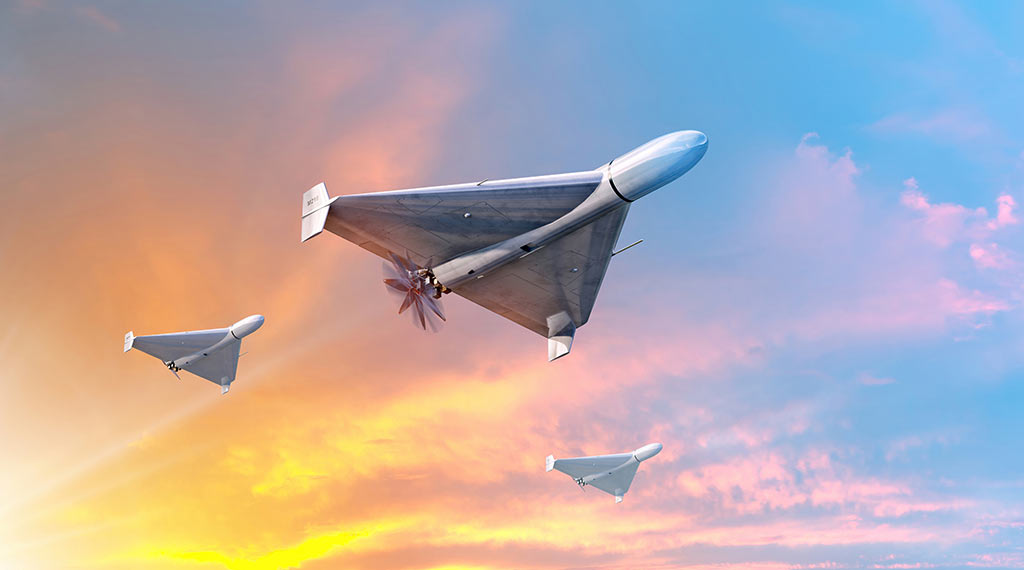
Iran is continuing to exploit Russia’s ongoing invasion of Ukraine to position itself as the world’s leading manufacturer of cheap and lethal drones.
A recent report published by The Guardian cited analysts with the U.S. Defense Intelligence Agency stating how Tehran evolved from primarily a regional drone supplier to “Moscow’s most significant military backer” through the course of the conflict in eastern Europe.
While it is widely understood that many of Moscow’s UAV-launched attacks are tied to Tehran, the defense officials paint a more detailed picture of the depth of the collaboration, using intelligence the U.S. has amassed since the summer.
The Iranian regime has admitted to outfitting Russian forces with drone supplies, however, they refuse to concede that these weapons had been used in the ongoing conflict. This report is instrumental since in-flight footage and other raw evidence have been collected to showcase the extent of Iranian drone use in Ukraine and therefore garner more support for sanctions against the regime.
Iran Denies Its Drones are Being Used in Ukraine
According to U.S. defense analysts, the most critical objective of the recently published report is the attempt to relay that “Iran’s foreign ministry is denying that they (drones) are being used,” and that “the U.S. and the UK want to provide irrefutable evidence to a global audience where there may be more skepticism.”
To hit this point, analysts compare imagery depicting the aftermath of a 2022 Iranian-launched drone attack in Iraq to the debris of a recent drone barrage in Kyiv. In both cases, an Iranian-designed Shahed-131 killer drone was used.
The Shahed-131 combat drone is an earlier version of the more widely recognized Shahed-136 variant. Although smaller in size than its predecessor, the Shahed-131 has similar capabilities and components. Similar to many of Iran’s “indigenous” weapons, the Shahed-131 is actually powered by a copycat version of the Beijing Micropilot UAV Control System Ltd MDR-208 Wankel engine. Both the Shahed-131 and its predecessor have been used frequently in attacks carried out by Russian Forces in Ukraine, including in barrages targeting the country’s energy sector.
Has Russia Been Using Modified Iranian Drones to Carry Out Power-Grid Attacks?
Interestingly, a secondary report released this month by the UK-based Conflict Armament Research (CAR) disclosed that Iranian drones used in attacks targeting Ukraine’s cities and power grids were “designed specifically for attacks against large targets like energy infrastructure.”
In December, dozens of drones struck power systems and civilian targets in central and western Kyiv. Russia has been prioritizing the destruction of Ukraine’s power grid this winter, in an effort to force millions of Ukrainians to go without heating, electricity, or water in freezing temperatures. Based on the CAR report, Russia has been using specially modified UAVs to carry out this mission.
A New Russian-Iranian Drone Factory is Underway
Potential plans to construct a joint Iranian-Russia drone factory in a small town near Moscow will only aid the Kremlin’s ability to carry out frequent and lethal barrages in Ukraine. The Wall Street Journal reported that Tehran and Moscow are collaborating to build a new factory that could make at least 6,000 Iranian-designed UAVs for Russia’s offensive efforts in Ukraine. Once these plans pan out, the modified drones – discussed in the CAR report – that Moscow has been using could become even more sophisticated.
Although the warming of relations between the Kremlin and the government in Tehran is widely understood, DIA officials are hoping that the evidence of Iran’s involvement in the Ukraine invasion laid out in its recent report will encourage international sanctions. Both countries have largely been iced out from the global community for different reasons; Russia’s ongoing invasion of Ukraine and Iran’s nuclear ambitions. Without anyone else to turn to, it makes sense that the two rogue actors would lean more on each other to achieve their aspiring national interests.
- America’s Supercarriers Are Back in Force in the Pacific - December 30, 2025
- Israel’s $2 Iron Beam Laser Could Disrupt Missile Warfare - December 23, 2025
- US Stands Up New Drone Strike Force in the Middle East - December 9, 2025
